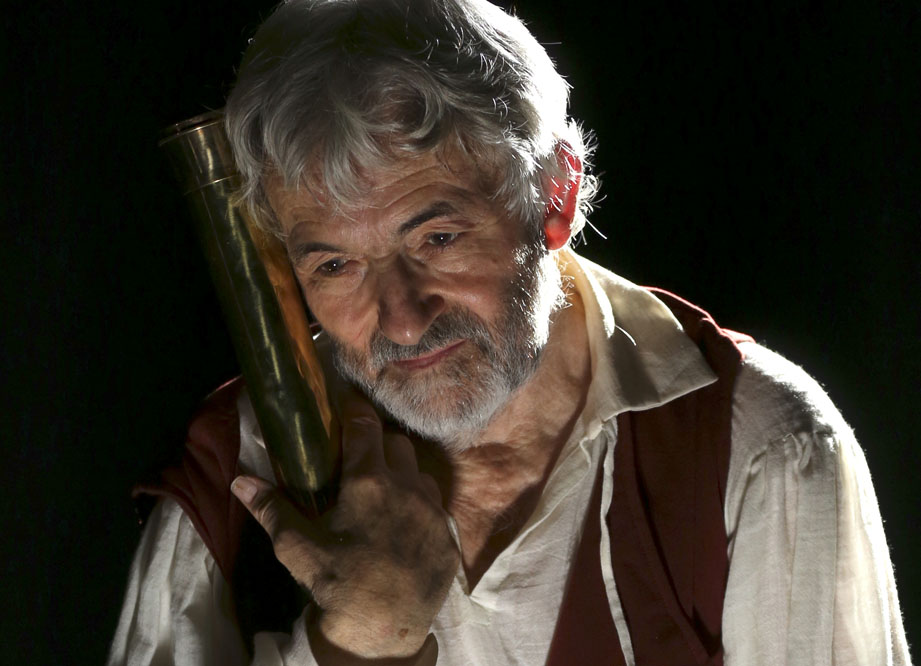
For me, 2015 was the year of the one-man show. During last year I saw some top-rate productions with a sole performer, so it felt very apt that my first play of 2016 was The Trials of Galileo, performed single-handedly by Royal Shakespeare Company veteran Tim Hardy.
Hardy plays Galileo, the seventeenth-century scientist who was prosecuted for mathematically proving Copernicus’s theory that the earth was not the centre of the universe, but that it in fact went around the sun. This heliocentric heresy did not go down well with the Vatican, who promptly banned his book and, by threat of torture, forced Galileo sign a confession to say that he was lying, and that he was awfully sorry and wouldn’t do anything so silly again.
The centre of the play is Galileo’s confession about the one he is forced to sign. Hardy conveys the battle within himself with real thespian conviction. Galileo knows he is telling the truth. The mathematics is there, for anyone to attempt (and fail) to disprove. But he’s not willing to die for his truth. He can’t be a martyr. He’s not Jesus Christ.
The argument against him is that proof denies faith. But Galileo is very much a man of God. He believes that learning the mechanics of the universe is an act of faith in itself. The impossible battle between truth and Truth, and between faith and Church, is fought in Hardy’s delivery. He is two men at once – the man who has made an incredible, world-changing discovery, and the man who is up against the System. He knows what he should say, if he were to be a soldier of the cause, but he does not say it, and the fact that he does not fills him with a palpable sense of shame.
The Trials of Galileo is a classic one-man show. A deep exploration in to character with few bells or whistles, this was all about Hardy. And he shines like the sun. ★★★★☆ Deborah Sims 8th January 2016

